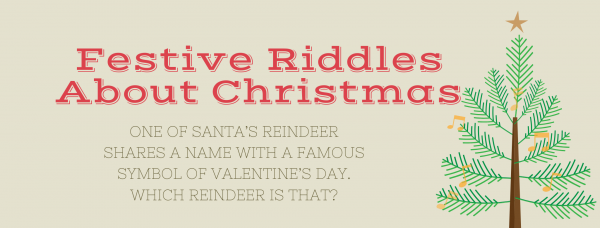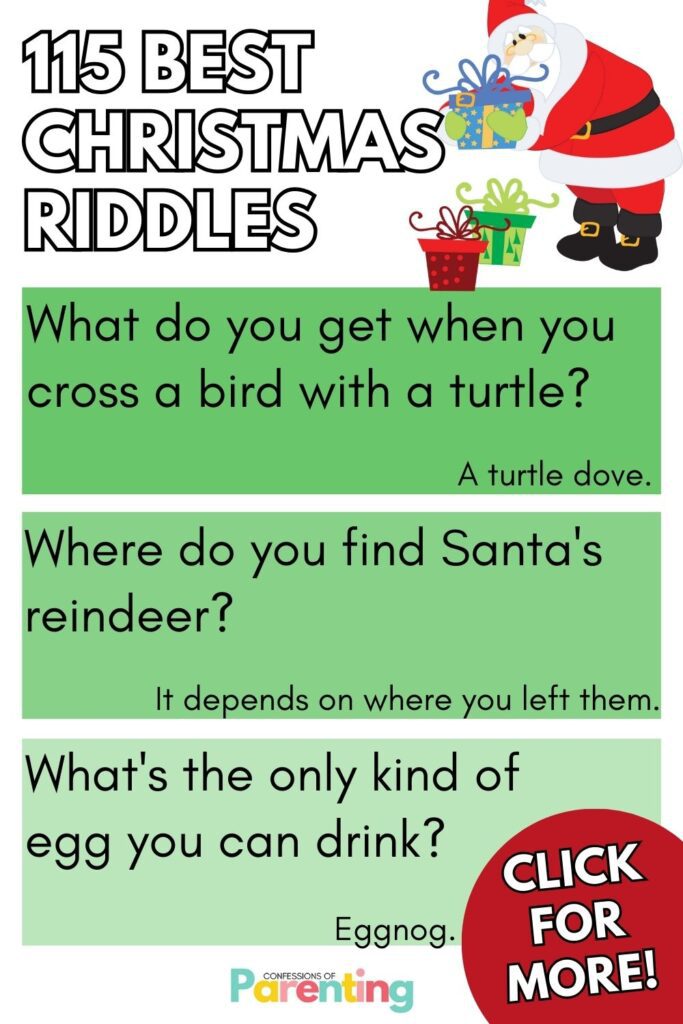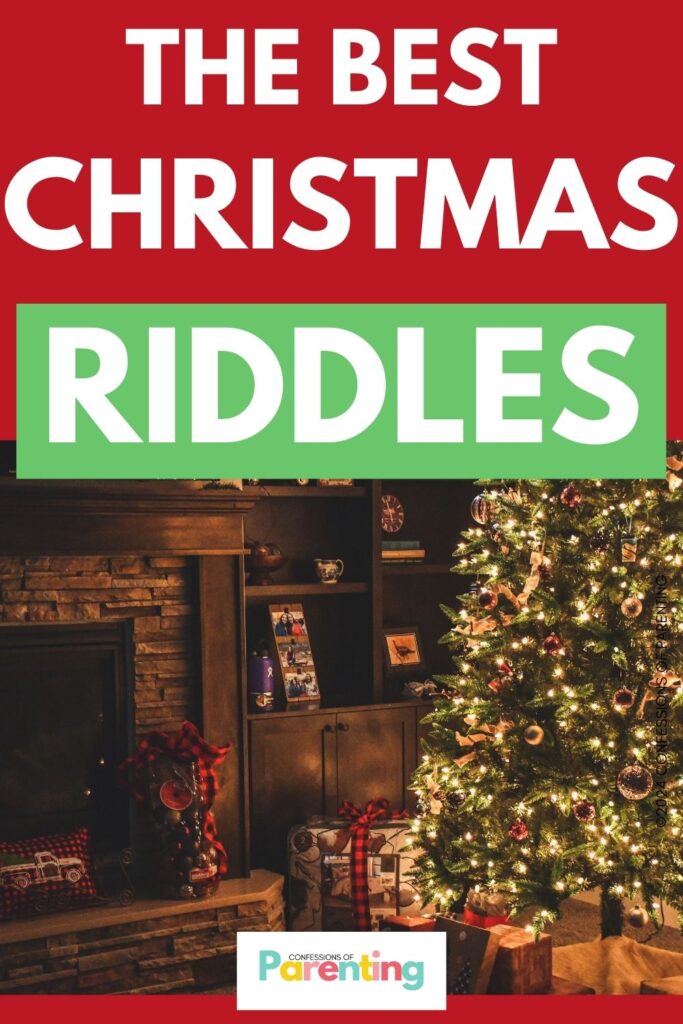The Art of Christmas Riddles: A Journey of Deduction and Festive Fun
Related Articles: The Art of Christmas Riddles: A Journey of Deduction and Festive Fun
Introduction
With great pleasure, we will explore the intriguing topic related to The Art of Christmas Riddles: A Journey of Deduction and Festive Fun. Let’s weave interesting information and offer fresh perspectives to the readers.
Table of Content
The Art of Christmas Riddles: A Journey of Deduction and Festive Fun

Christmas, a time of joy, togetherness, and the exchange of gifts, also offers a unique opportunity for a playful exercise of the mind: the art of solving Christmas riddles. These puzzles, often presented in the form of "What am I?" questions, engage our deductive reasoning skills, challenge our knowledge of holiday traditions, and foster a sense of playful competition, making them a delightful addition to any festive gathering.
Understanding the Essence of Christmas Riddles
Christmas riddles, much like any other riddle, operate on the principle of concealing information and requiring the solver to unravel the hidden meaning. They often employ wordplay, metaphor, and allusion, drawing upon a shared understanding of Christmas traditions and symbols. The challenge lies in recognizing these clues and applying logical deduction to arrive at the correct answer.
Unpacking the Structure of "What Am I?" Christmas Riddles
The "What Am I?" format is a cornerstone of Christmas riddles. This structure provides a clear framework for the puzzle, establishing a direct line of inquiry for the solver. The riddle itself usually presents a series of clues, often in the form of descriptive phrases or metaphorical statements, which collectively point towards a specific Christmas-related object, tradition, or concept.
Delving into the Benefits of Solving Christmas Riddles
The act of solving Christmas riddles offers a range of cognitive and social benefits:
- Cognitive Enhancement: Engaging with riddles stimulates critical thinking, problem-solving, and analytical skills. The process of deciphering clues and constructing logical connections strengthens cognitive abilities and enhances mental agility.
- Enrichment of Festive Celebrations: Christmas riddles introduce an element of interactive entertainment to holiday gatherings. They provide a lighthearted activity that encourages laughter, conversation, and shared intellectual engagement.
- Cultural Understanding: Riddles often draw upon cultural references and traditions. By engaging with Christmas riddles, individuals gain a deeper understanding of the holiday’s symbolism and significance within a particular culture.
- Building Bonds: The collaborative nature of solving riddles fosters a sense of camaraderie and shared accomplishment. It encourages teamwork and communication, strengthening relationships between participants.
Exploring the Different Types of Christmas Riddles
Christmas riddles come in various forms, each with its own unique characteristics:
- Object-Based Riddles: These riddles focus on specific Christmas objects, such as ornaments, decorations, or gifts. They often describe the object’s appearance, purpose, or symbolism.
- Tradition-Based Riddles: These riddles center around Christmas traditions, such as caroling, gift-giving, or decorating the Christmas tree. They may describe the activity, its purpose, or its historical significance.
- Character-Based Riddles: These riddles feature Christmas characters, such as Santa Claus, elves, or reindeer. They may describe the character’s appearance, personality, or role in the Christmas narrative.
- Concept-Based Riddles: These riddles explore abstract Christmas concepts, such as joy, peace, or giving. They may use metaphors or allegories to express the concept’s meaning.
Illustrative Examples of Christmas Riddles
To further understand the mechanics of Christmas riddles, let’s examine a few examples:
Example 1:
I hang from the tree, but I’m not a decoration.
I come in many colors, but I’m not a light.
I bring joy to children, but I’m not a toy.
What am I?
Answer: A stocking
Example 2:
I travel the world in one night, but I don’t have a passport.
I deliver gifts to good children, but I don’t have a delivery truck.
I wear a red suit, but I’m not a postman.
What am I?
Answer: Santa Claus
Example 3:
I’m a symbol of Christmas, but I’m not a tree.
I’m covered in snow, but I’m not a mountain.
I bring good tidings, but I’m not a messenger.
What am I?
Answer: A snowflake
FAQs: Demystifying the World of Christmas Riddles
1. Are Christmas riddles appropriate for all ages?
Christmas riddles can be adapted to suit different age groups. Younger children may enjoy simpler riddles with more straightforward clues, while older children and adults can tackle more complex puzzles.
2. What are some resources for finding Christmas riddles?
There are numerous resources available online and in print for finding Christmas riddles. Websites, books, and even holiday-themed magazines often feature collections of these festive puzzles.
3. How can I make my own Christmas riddles?
Creating your own Christmas riddles is a fun and engaging activity. Start by choosing a Christmas-related topic and then brainstorm descriptive phrases or metaphors that hint at the answer. Remember to keep the clues relevant and challenging, but not overly obscure.
Tips for Solving Christmas Riddles:
- Read the riddle carefully: Pay attention to every word and phrase, as they may contain important clues.
- Consider the context: Think about the holiday season and its associated traditions, symbols, and characters.
- Look for synonyms and metaphors: The riddle may use words or phrases that have multiple meanings or represent something else.
- Eliminate possibilities: As you gather clues, start eliminating unlikely answers until you arrive at the most logical solution.
- Don’t be afraid to ask for help: If you’re stuck, don’t hesitate to ask others for assistance or hints.
Conclusion: The Enduring Appeal of Christmas Riddles
Christmas riddles, with their blend of festive themes and mental stimulation, offer a unique and enjoyable way to celebrate the holiday season. They provide an opportunity for intellectual engagement, foster a sense of camaraderie, and enrich the festive spirit. Whether you’re a seasoned riddle solver or a curious newcomer, the world of Christmas riddles promises a delightful journey of deduction, laughter, and holiday cheer.








Closure
Thus, we hope this article has provided valuable insights into The Art of Christmas Riddles: A Journey of Deduction and Festive Fun. We hope you find this article informative and beneficial. See you in our next article!